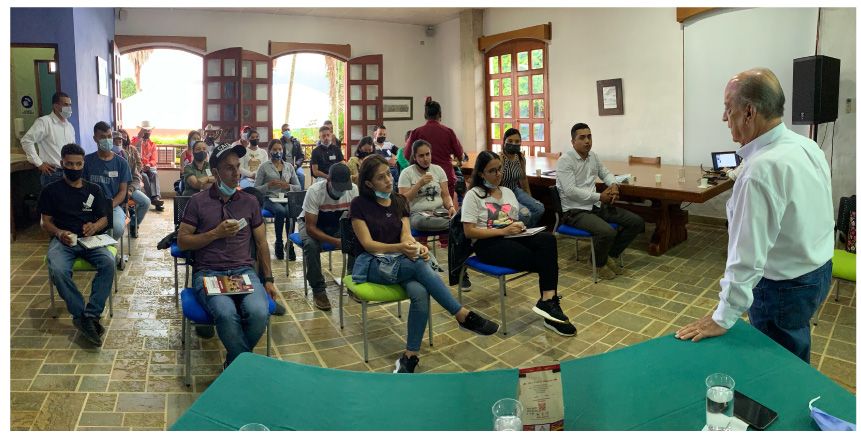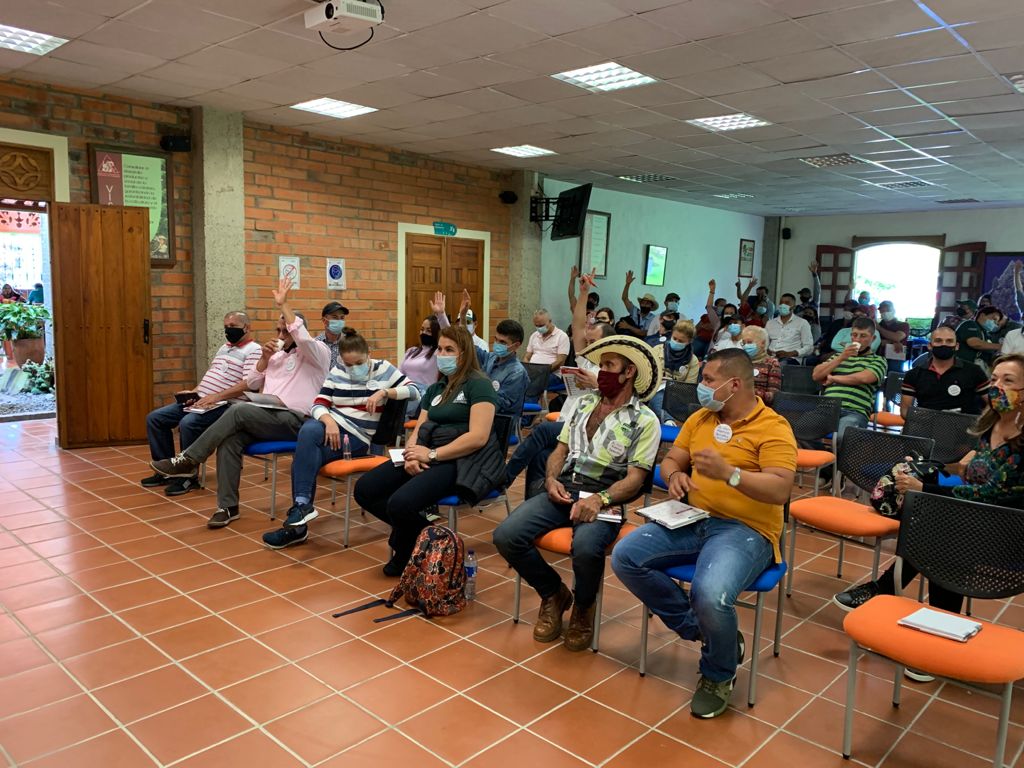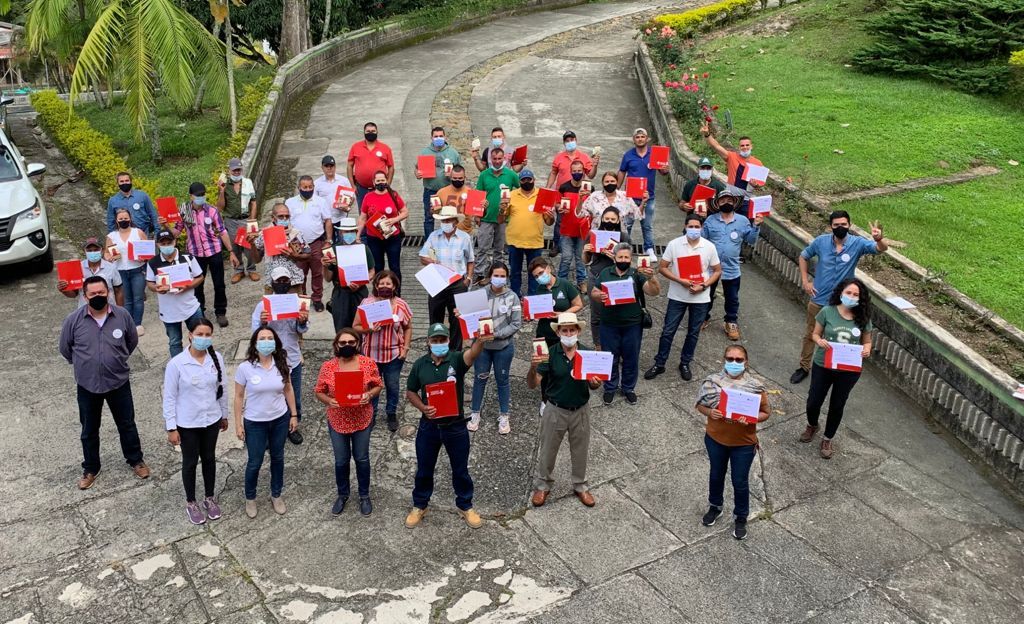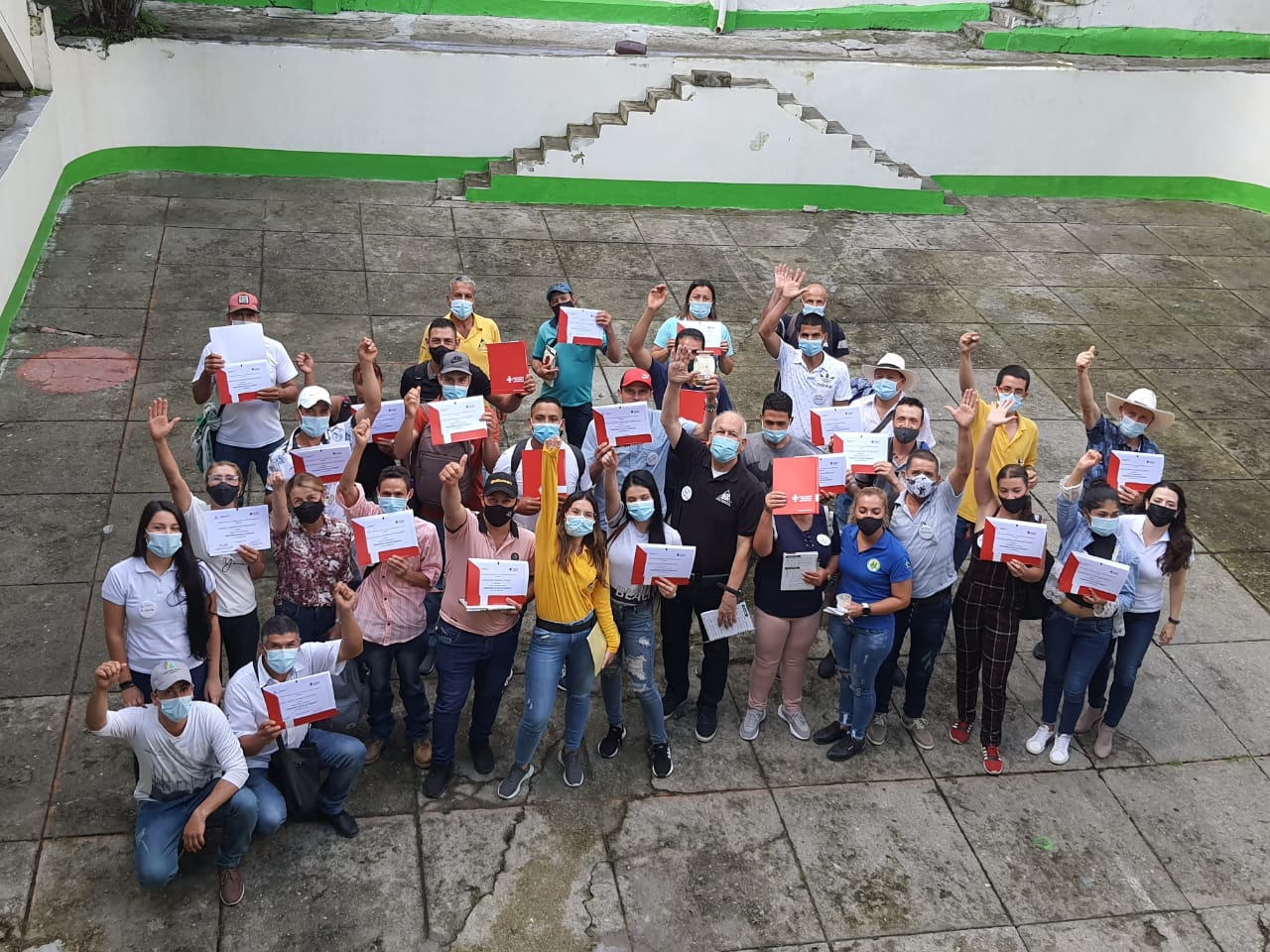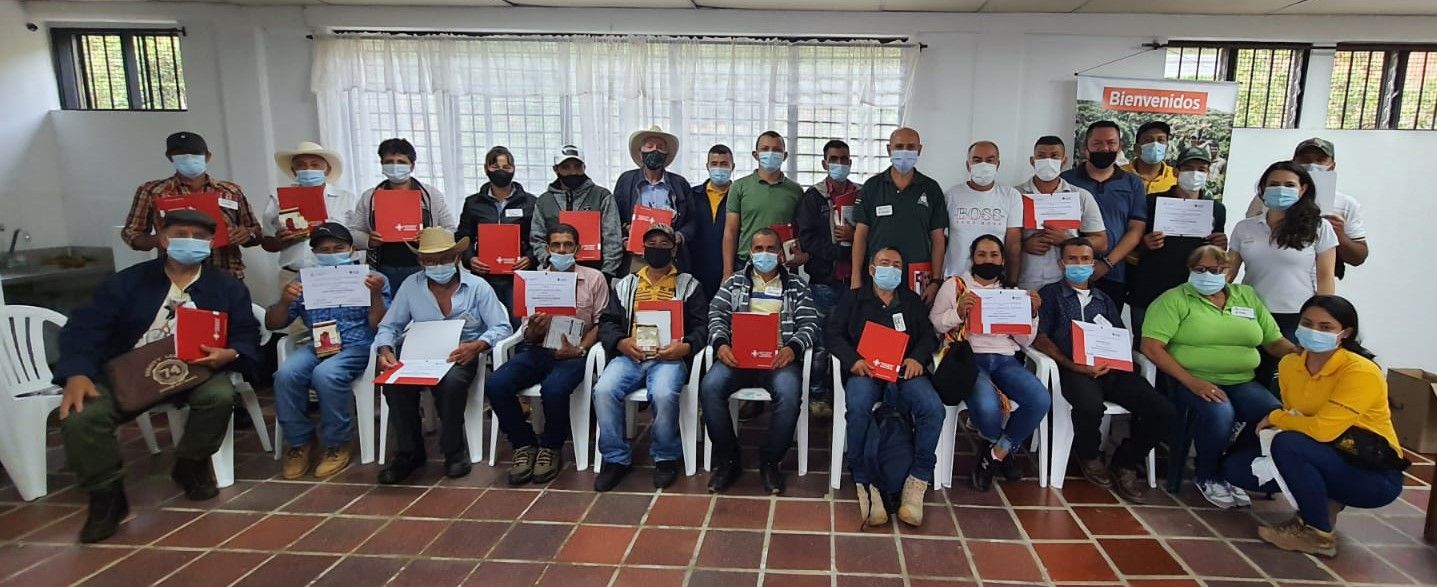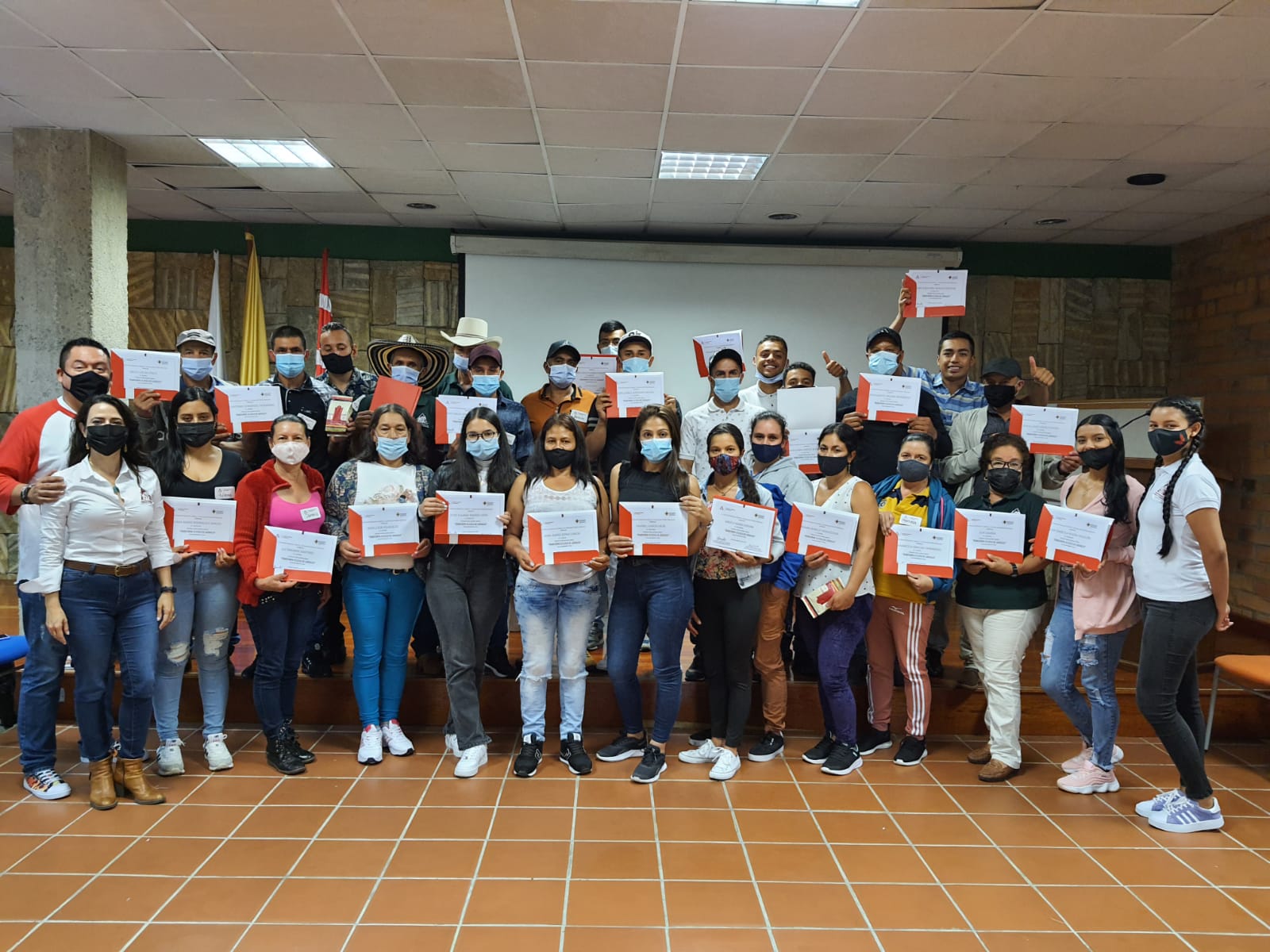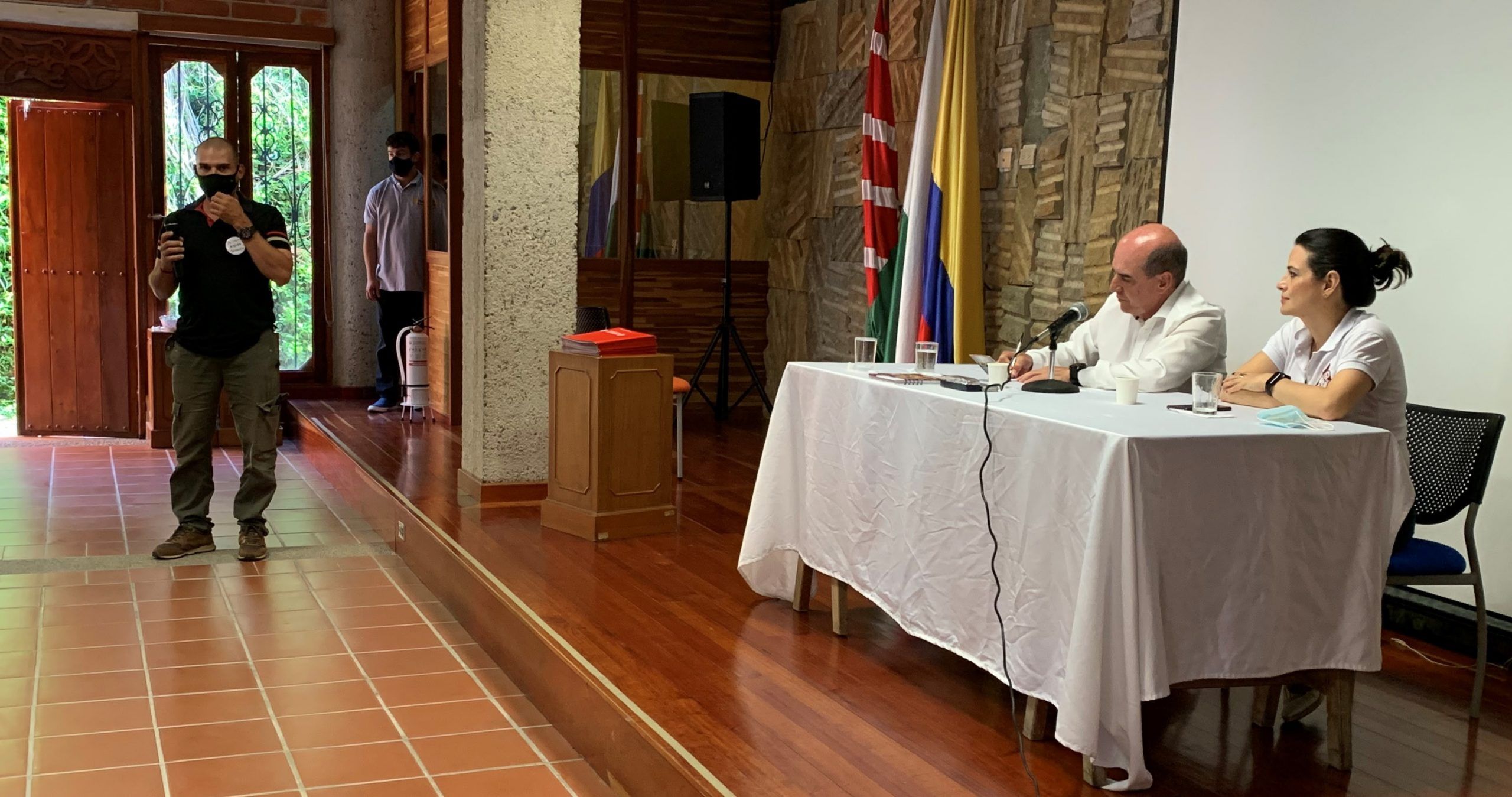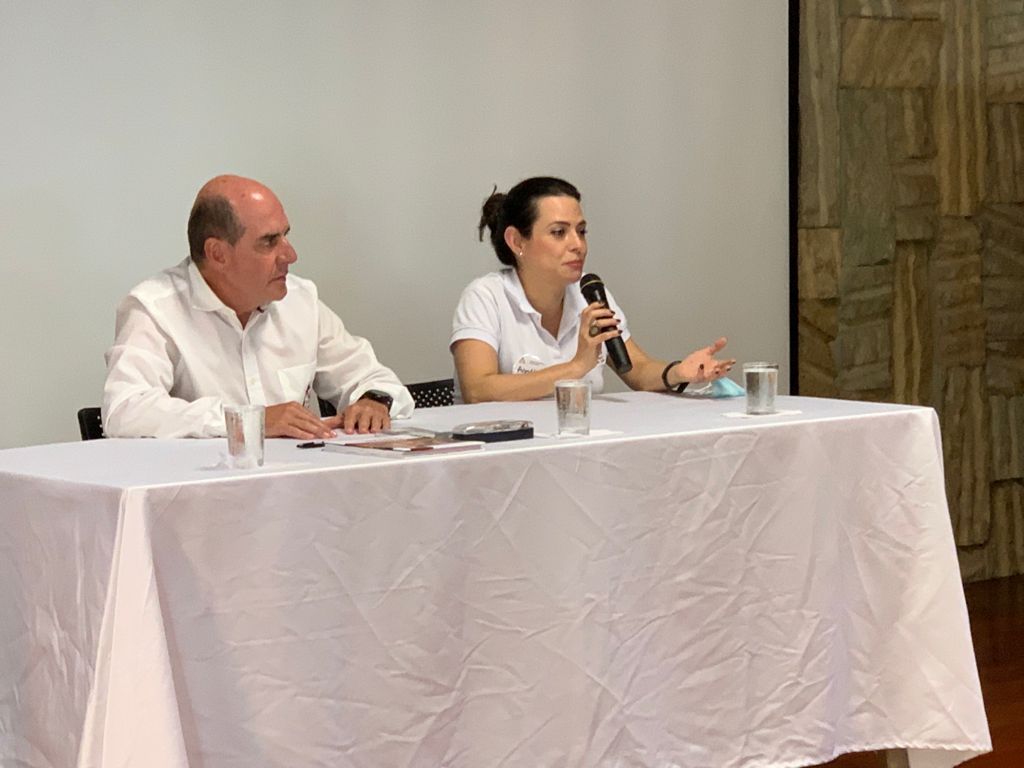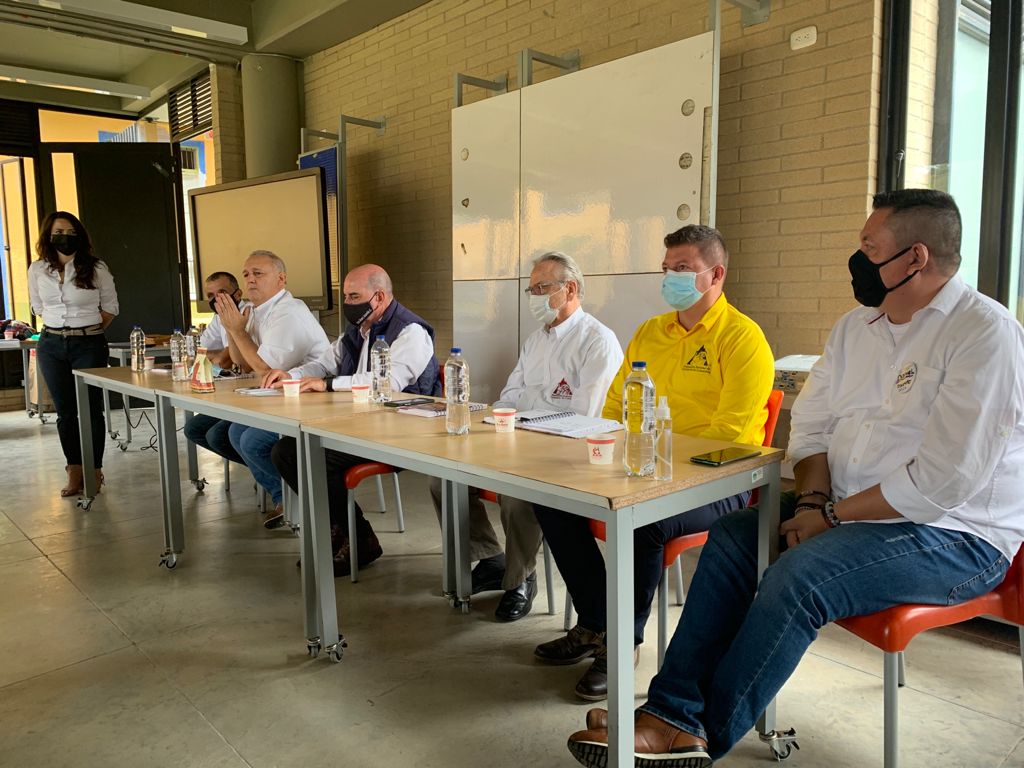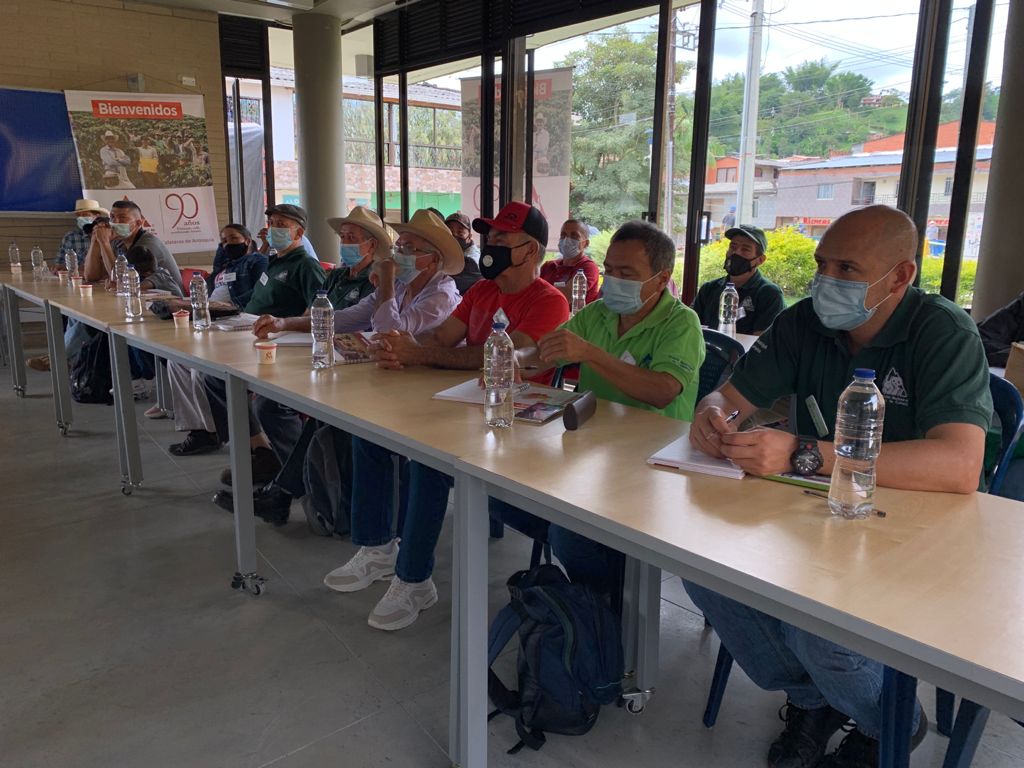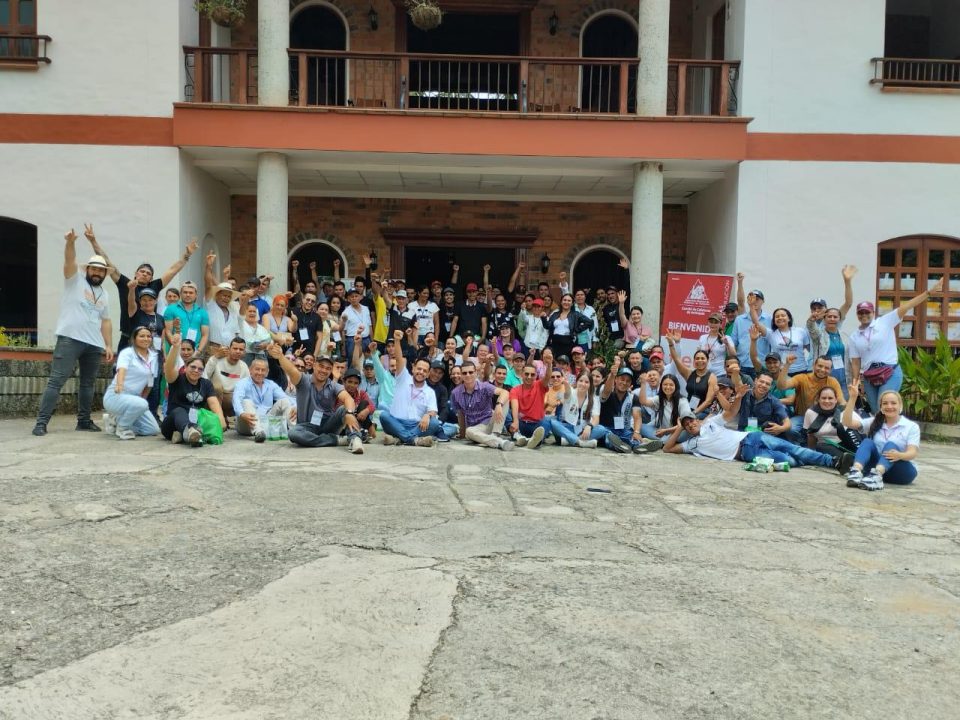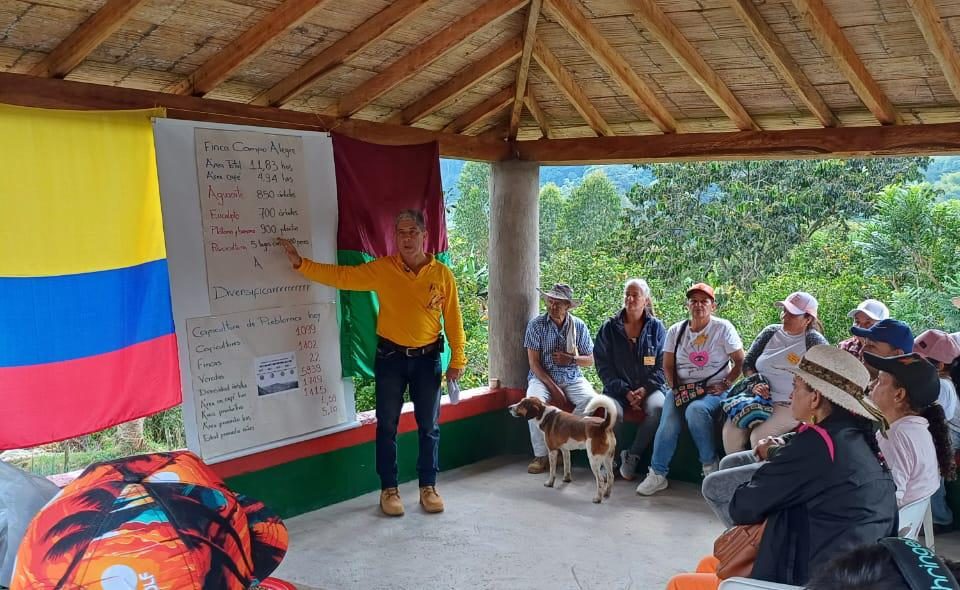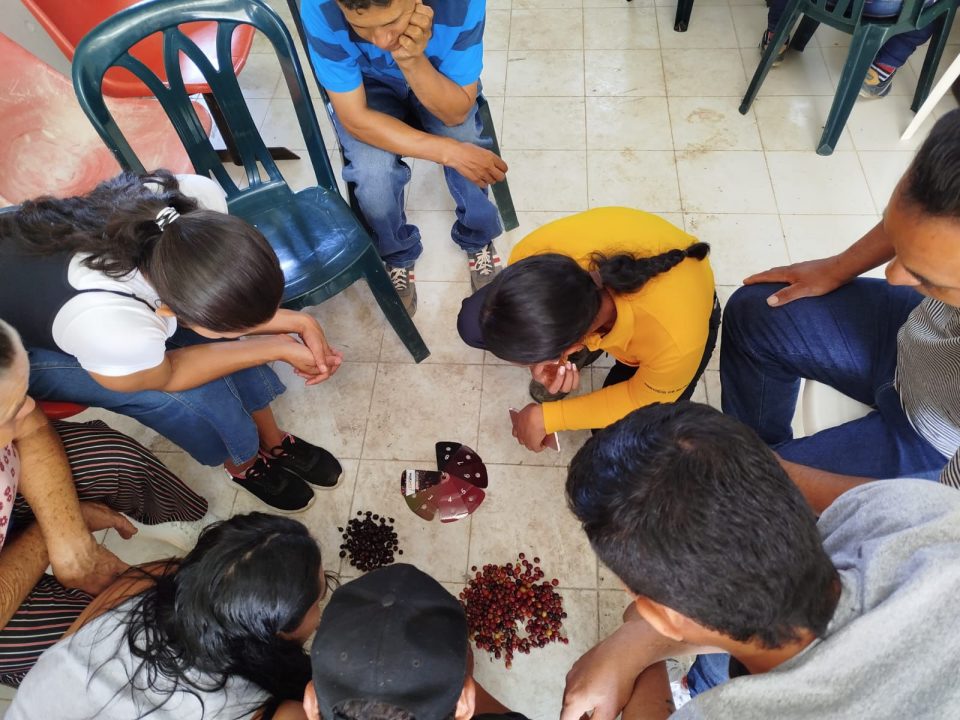El Comité de Cafeteros de Antioquia inició la preparación de los líderes gremiales para las Elecciones Cafeteras de septiembre de 2022, en las que se elegirán a los representantes del Comité Departamental de Cafeteros y de los 72 Comités Municipales de Cafeteros del departamento.
Por medio de los talleres “Transforma tu estilo de liderazgo”, inicialmente 480 líderes de 16 municipios fortalecen sus capacidades de comunicación, negociación, gestión de recursos y conocimiento institucional, para ejercer sus posibles candidaturas y roles de liderazgo en las corporaciones gremiales.
Los talleres son liderados por el proceso de Fortalecimiento Gremial del Comité de Cafeteros de Antioquia y facilitados y certificados por la Universidad Pontificia Bolivariana; cuentan con la participación de líderes actuales de los Comités de Cafeteros y de otros líderes locales identificados en las comunidades.
Actualmente ya se han formado caficultores de los municipios de Támesis, Amagá, Concordia, Betania, Ciudad Bolívar, Salgar, Liborina, San Roque y Caicedo.




